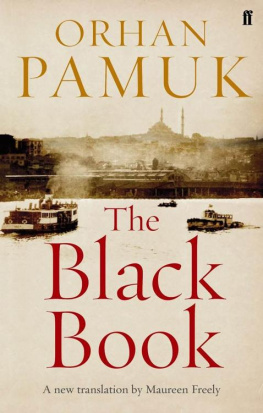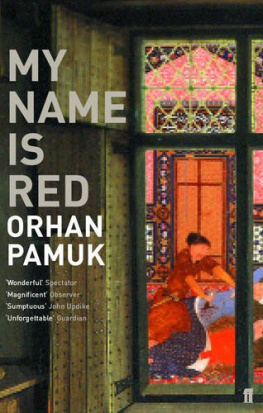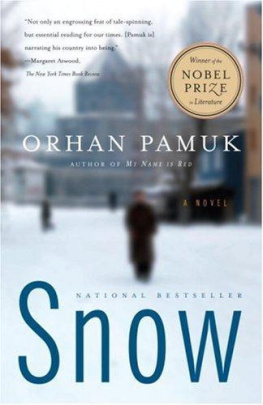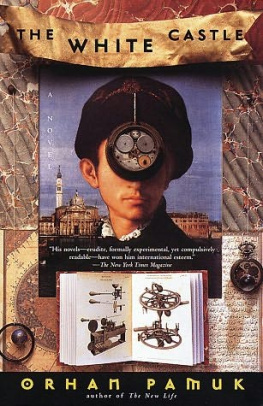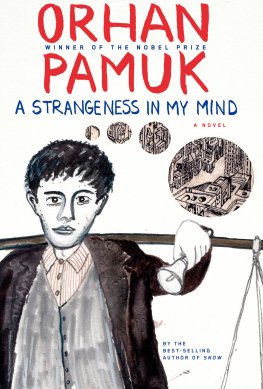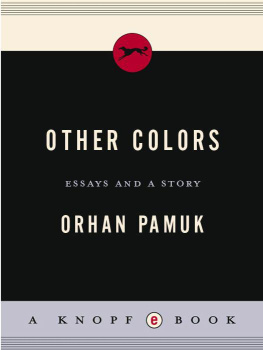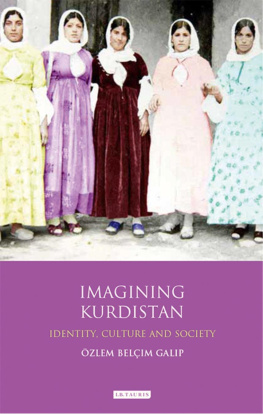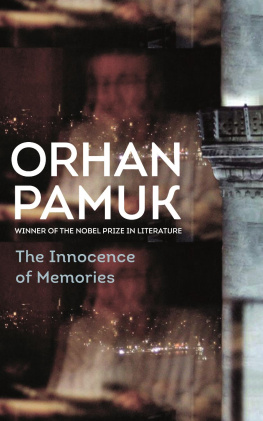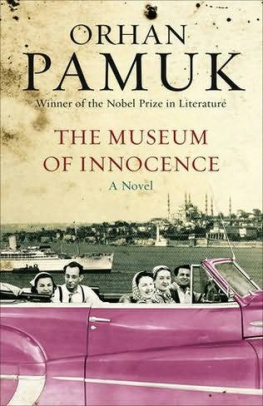Praise for Istanbul:
Extraordinary and moving. Financial Times
A declaration of love. Sunday Times
Magnificent, elegiac, impressionistic. Literary Review
An irresistibly seductive book. Guardian
Praise for Snow:
A novel of profound relevance to the present moment. The Times
A gripping political thriller. Spectator
Profound and frequently brilliant. New Statesman
An act of bravery A vital book. Daily Telegraph
To Ayln
Ibn Arabi writes of a friend and dervish saint who, after his soul was elevated to the heavens, arrived on Mount Kaf, the magic mountain that encircles the world; gazing around him, he saw that the mountain itself was encircled by a serpent. Now, it is a well-known fact that no such mountain encircles the world, nor is there a serpent.
The Encyclopedia of Islam
Contents
Chapter One
The First Time Galip Saw Rya
Chapter Two
When the Bosphorus Dries Up
Chapter Three
Send Rya Our Love
Chapter Four
Aladdins Shop
Chapter Five
Perfectly Childish
Chapter Six
Bedii Ustas Children
Chapter Seven
The Letters in Mount Kaf
Chapter Eight
The Three Musketeers
Chapter Nine
Someones Following Me
Chapter Ten
The Eye
Chapter Eleven
We Lost Our Memories at the Movies
Chapter Twelve
The Kiss
Chapter Thirteen
Look Whos Here
Chapter Fourteen
Were All Waiting for Him
Chapter Fifteen
Love Stories on a Snowy Evening
Chapter Sixteen
I Must Be Myself
Chapter Seventeen
Do You Remember Me?
Chapter Eighteen
The Dark Air Shaft
Chapter Nineteen
Signs of the City
Chapter Twenty
The Ghost House
Chapter Twenty-one
Cant You Sleep?
Chapter Twenty-two
Who Killed Shams of Tabriz?
Chapter Twenty-three
A Story About People Who Cant Tell Stories
Chapter Twenty-four
Riddles in Faces
Chapter Twenty-five
The Executioner and the Weeping Face
Chapter Twenty-six
The Mystery of the Letters and the Loss of Mystery
Chapter Twenty-seven
A Very Long Chess Game
Chapter Twenty-eight
The Discovery of Mystery
Chapter Twenty-nine
It Seems I Was the Hero
Chapter Thirty
O Brother Mine
Chapter Thirty-one
In Which the Story Goes Through the Looking Glass
Chapter Thirty-two
Im Not a Madman, Just a Loyal Reader
Chapter Thirty-three
Mysterious Paintings
Chapter Thirty-four
Not the Storyteller, but the Story
Chapter Thirty-five
The Story of the Crown Prince
Chapter Thirty-six
But I Who Write
PART ONE
Chapter One

The First Time Galip Saw Rya
Never use epigraphsthey kill the mystery in the work!
Adli
If thats how it has to die, go ahead and kill it; then kill the false prophets who sold you on the mystery in the first place!
Bahti
R ya was lying facedown on the bed, lost to the sweet warm darkness beneath the billowing folds of the blue-checked quilt. The first sounds of a winter morning seeped in from outside: the rumble of a passing car, the clatter of an old bus, the rattle of the copper kettles that the salep maker shared with the pastry cook, the whistle of the parking attendant at the dolmu stop. A cold leaden light filtered through the dark blue curtains. Languid with sleep, Galip gazed at his wifes head: Ryas chin was nestling in the down pillow. The wondrous sights playing in her mind gave her an unearthly glow that pulled him toward her even as it suffused him with fear. Memory , Cell had once written in a column, is a garden . Ryas gardens, Ryas gardens Galip thought. Dont think, dont think, it will make you jealous! But as he gazed at his wifes forehead, he still let himself think.
He longed to stroll among the willows, acacias, and sun-drenched climbing roses of the walled garden where Rya had taken refuge, shutting the doors behind her. But he was indecently afraid of the faces he might find there: Well, hello! So youre a regular here too, are you? It was not the already identified apparitions he most dreaded but the insinuating male shadows he could never have anticipated: Excuse me, brother, when exactly did you run into my wife, or were you introduced? Three years ago at your house, inside a foreign fashion magazine from Aladdins shop, at middle school, outside the movie theater where you once sat hand in hand. No, perhaps Ryas memories were not so cruelly crowded; perhaps she was at this very moment basking in the one sunny corner in the dark garden of her memories, setting out with Galip in a rowboat. Six months after Ryas family moved to Istanbul , Galip and Rya had both come down with mumps. To speed their recovery, Galips mother and Ryas mother, the beautiful Aunt Suzan, would take the children out to the Bosphorus; some days it would be just one mother taking them by the hand and other days it would be both; whatever bus they took, it shuddered as it rolled over the cobblestones , and wherever it took themBebek or Tarabyathe high point of the excursion was a tour of the bay in a rowboat. In those days it was microbes people feared and respected, not medicines, and everyone agreed that the pure air of the Bosphorus could cure children of the mumps. The sea was always calm on those mornings, and the rowboat white; it was always the same friendly boatman waiting to greet them. The mothers and aunts would sit at the back of the rowboat, Rya and Galip side by side at the front, shielded from their mothers gaze by the rising and falling back of the boatman. As they trailed their feet in the water, they would gaze at their matching legs and the sea swirling around their delicate ankles; the seaweed and seven-colored oil spills, the tiny, almost translucent pebbles, and the scraps of newspaper they strained to read, hoping to spot one of Cells columns.
The first time Galip saw Rya, six months before coming down with the mumps, he was sitting on a stool on the dining room table while a barber cut his hair. In those days, there was a tall barber with a Douglas Fairbanks mustache whod come to the house five days a week to give Grandfather a shave. These were the days when the coffee lines outside Aladdins and the Arabs grew longer every day, when the only nylon stockings you could find were the ones on the black market, when the number of 56 Chevrolets in Istanbul grew steadily larger, and Galip pored over the columns that Cell published every weekday on page two of Milliyet under the name Selim Kamaz, but it was not when he first learned how to read, because it was Grandmother whod taught him two years before starting school. Theyd sit at the far end of the dining table. After Grandmother had hoarsely divulged the greatest mystery of allhow the letters joined up to make wordsshe would puff on the Bafra shed seen no reason to remove from the side of her mouth, and as her grandsons eyes watered from the cigarette smoke, the enormous horse in his alphabet book would turn blue and come to life. A was for at , the Turkish word for horse ; it was larger even than the bony horses that pulled the carts belonging to the lame water seller and the junk dealer they said was a thief. In those days, Galip would long for a magic potion to pour over the picture of this sprightly alphabet horse, to give it the strength to jump off the page; later on, when they held him back in the first year of primary school and he had to learn how to read and write all over again under the supervision of the very same alphabet horse, he would dismiss this wish as nonsense.

